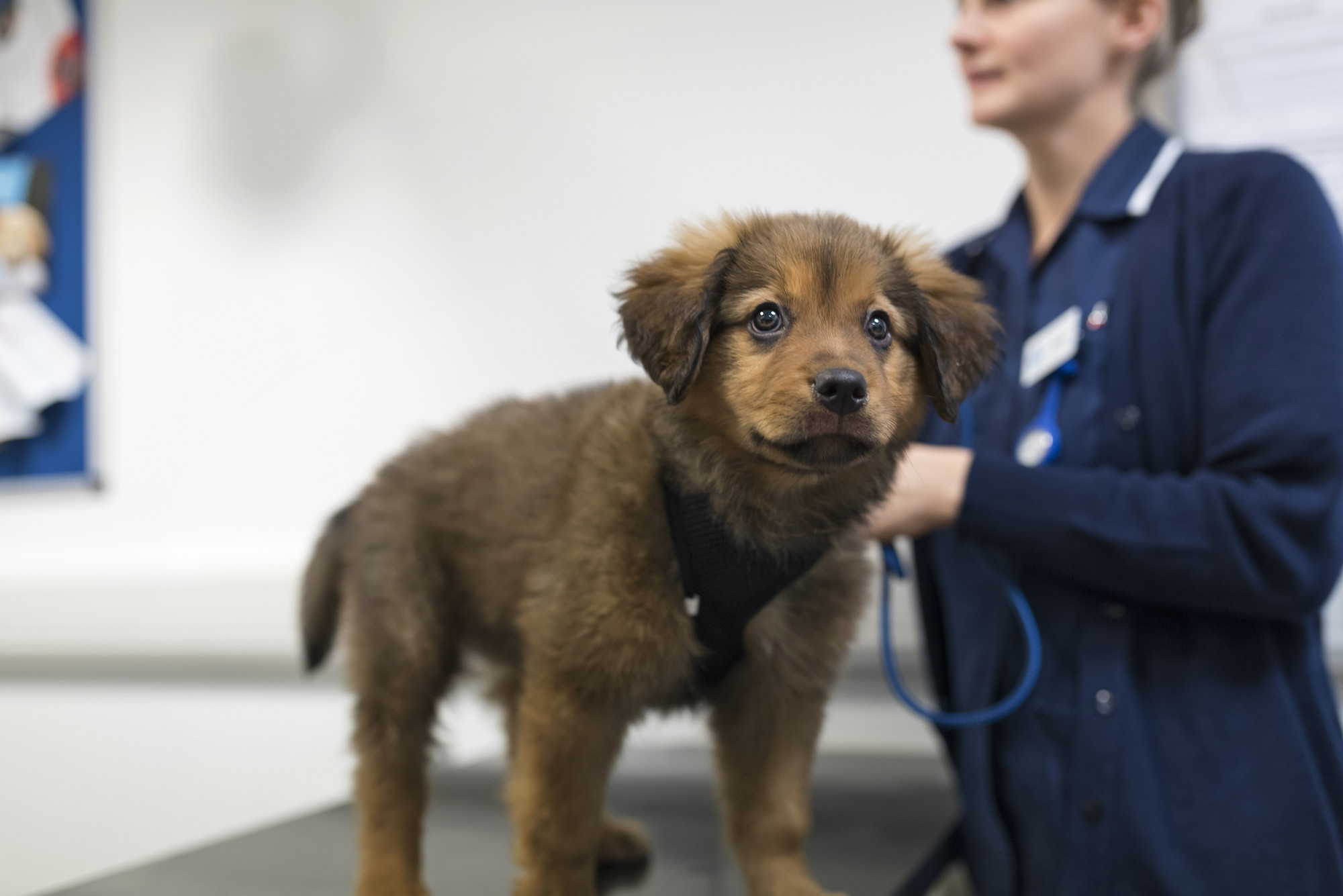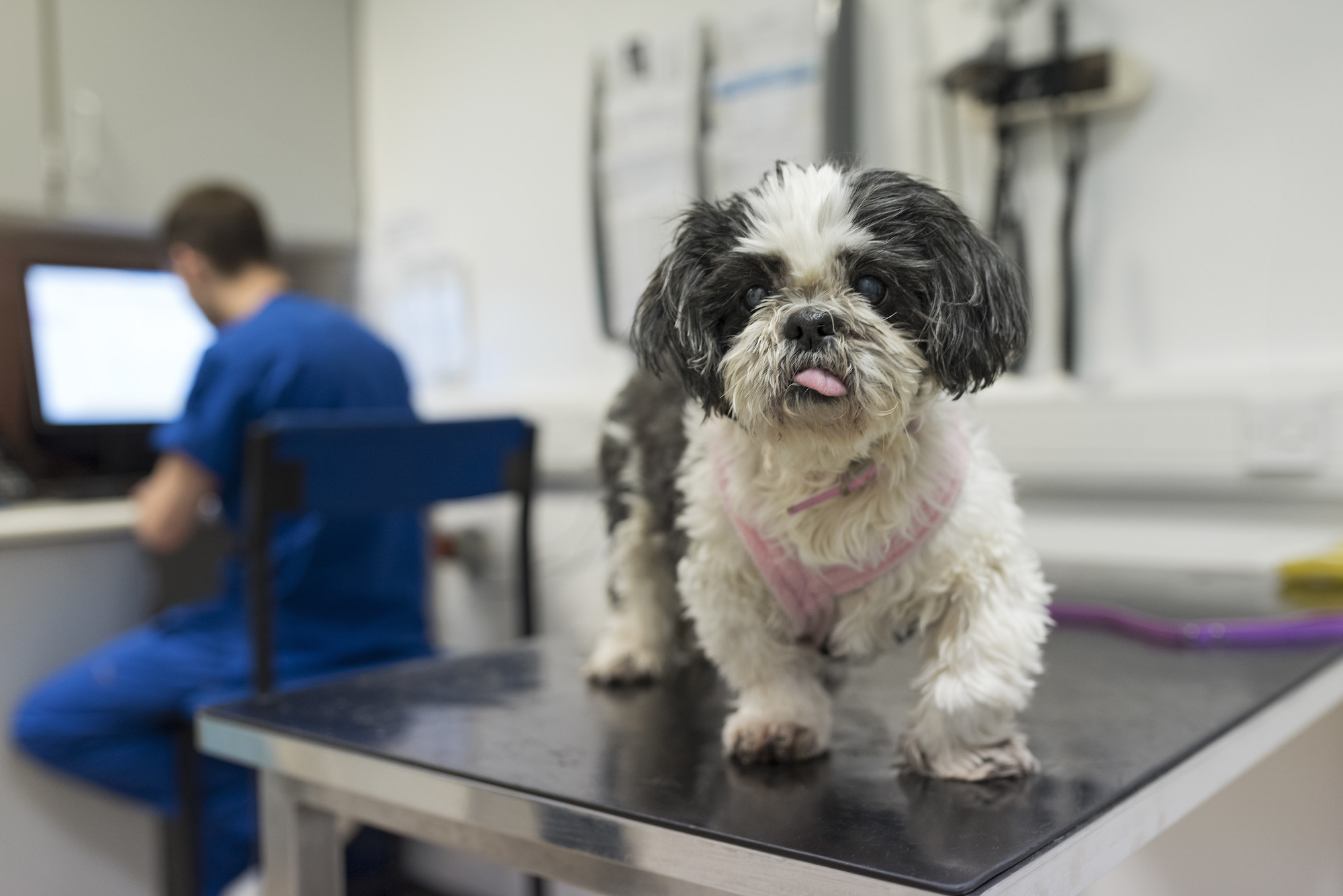
Puppy and dog vaccinations
- Vaccinations protect pets from diseases that remain a high risk and can kill
- Puppies will need to be vaccinated against the killer infections from six to nine weeks of age
- They will then be protected against parvovirus, distemper, leptospirosis and adenovirus 1 and 2
- If you do not know if your pet has been vaccinated, it does not hurt to repeat the course
- Some booster injections are needed annually, with others required up to three years apart
Why does my dog need vaccinations?
Vaccinations protect your dog against killer diseases and they are likely to be a requirement if your dog goes into boarding kennels or travels abroad with you. Each injection can contain up to several vaccines against as many as seven different diseases.
When should my puppy have his or her first vaccinations?
Puppies are normally safe from most infections for the first few weeks of their lives thanks to the immunity passed onto them through their mother’s milk. But they will normally need to start vaccinations between the ages of six to nine weeks. Several initial injections are required, followed by regular boosters which will need to be kept up to date for the rest of your dog’s life.
Until your puppy’s vaccination course is complete and active (follow your vet’s advice, but this is normally at between 11 to 13 weeks), they should not go to outside public areas, or any garden where an unvaccinated dog may have been. But during this time it is still important that your puppy starts learning how to socialise (that is, being familiar with a range of situations and experiences, and how to make friends with other dogs and people). Many vets now run special classes where puppies can learn to socialise with minimal risk of disease.
What if I don’t know if my dog has been vaccinated?
Respectable breeders will be able to give you this information, and good rehoming charities like Blue Cross will give a puppy a full vet check and provide up-to-date vaccines before they start their life as your pet. But, if for any reason you are unsure if your dog has had its vaccinations, consult your vet for advice. It does not hurt to repeat the course of injections. Blood tests to measure antibodies are sometimes suggested to find out if vaccinations are needed but the antibodies they measure may not be effective in preventing disease.
How often will my adult dog need booster vaccinations?
After your puppy’s initial vaccination course is complete, he or she will need a follow up injection every year. Which vaccines are given will depend on your dog’s general health and the prevalence of disease in the area you live. For instance, the leptospirosis vaccine needs to be given every year but parvovirus and distemper may only be needed every three years. Your vet should provide you with a vaccination record card so that you know when your dog is due to have his or her boosters.
What diseases do the usual vaccinations protect against?
Parvovirus
Parvovirus is a highly infectious disease that is often fatal and is very costly to treat. It is spread through contaminated faeces of affected dogs, and can remain active in the environment for anything up to nine months. The virus causes severe vomiting and diarrhoea which leads to a dog or puppy becoming very weak and dehydrated. The disease is more prevalent in certain parts of the country than others, so vaccination frequency advice may vary.
More on prevention, symptoms and treatment of parvovirus.
Canine distemper
This virus is spread by an infected dog’s saliva and occasionally urine, and is normally contracted through direct contact. Initial symptoms include fever, eye and nose discharge, poor appetite and coughing. As the disease progresses, it can cause vomiting, diarrhoea and the skin on the paw pads to become hardened. In later stages, the central nervous system can be affected, causing symptoms such as seizures, limb weakness and imbalance. Serious cases can be fatal, and if a dog recovers it may suffer fits and ongoing health problems. There is no medicinal cure, only prevention. Dogs with the virus will be given supportive care to help their bodies fight the virus and treated with fluids to prevent dehydration and medication to help control seizures.
More on prevention, symptoms and treatment of canine distemper.
Leptospirosis
This is a serious, life-threatening disease which can progress quickly and lead to organ failure. It is spread through the urine of infected animals, which can contaminate water or soil. The disease enters the body through the eyes, nose, mouth or broken skin. Symptoms include excessive thirst, fever, vomiting, muscle pain and infertility. The disease can also infect humans. Antibiotics can treat the disease, but there will often be long-term health complications.
Adenovirus 1 and 2
This is a viral disease with two strains, the first of which causes hepatitis, an infection of the liver (also known as Infectious Canine Hepatitis). The second strain causes a respiratory illness which is a type of kennel cough. In both cases the disease is transmitted through saliva, urine, faeces, blood or nasal discharge of infected dogs and the virus can survive for many months.
Canine parainfluenza
This is a highly contagious and airborne respiratory infection, like a cold. It is not usually serious, but important to vaccinate against.
Are there any other vaccines my dog might need?
Kennel cough
Kennel cough is not usually dangerous, but can be a nuisance. Some of the viruses which can contribute to kennel cough are included in a dog’s core vaccines, but the actual cause is a bacterium, and a separate vaccination is available for this. It’s likely that you’ll need this if your dog is going into kennels. It has to be given into the nose and is only protective for six months.
More information about kennel cough.
Rabies
Although rabies is not a required vaccine for dogs in the UK, it is if you’re planning on taking your dog on holiday with you to another EU country. Your dog will need to be at least 12 weeks old and already microchipped to have the jab. The injection is a requirement, among others, of getting a Pet Passport, which allows you to take your dog to another EU country and bring him or her back to the UK.
How much will vaccinations cost?
Your puppy’s initial set of vaccines will cost between £30 and £60, but this is far less than the cost of treating the diseases themselves. It will also save your dog from pain, discomfort and even death, and means that you and your family will be spared the stress of coping with a seriously ill pet. Regular booster vaccines will cost less than the initial vaccinations.
If you are on benefits and live in an area covered by Blue Cross, you may also be eligible for help with veterinary care.








